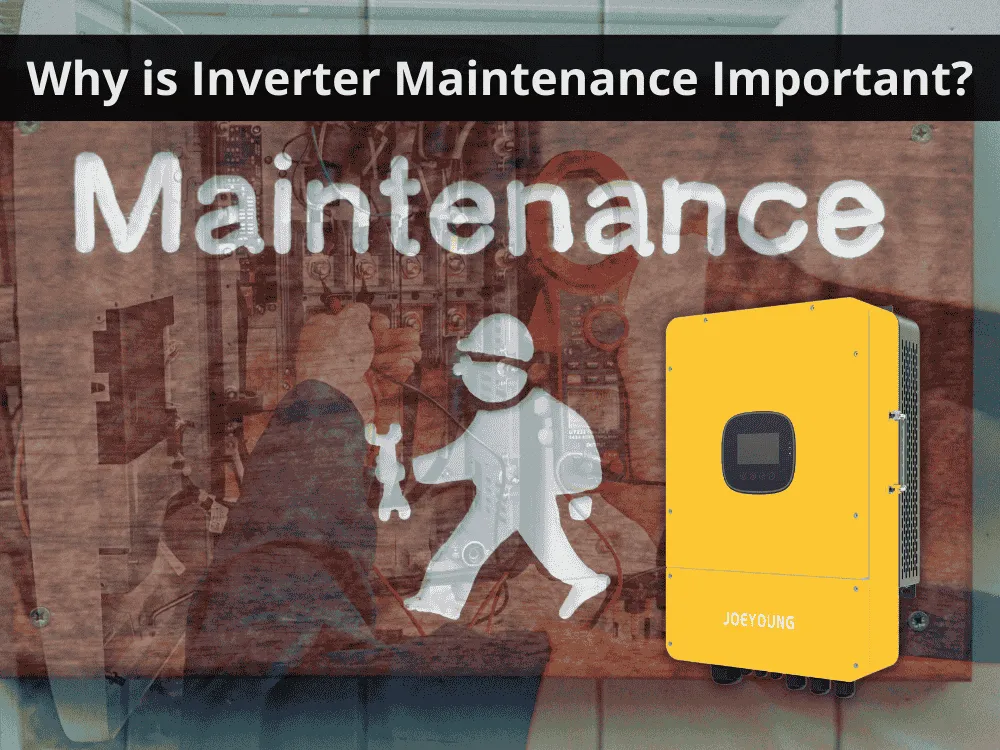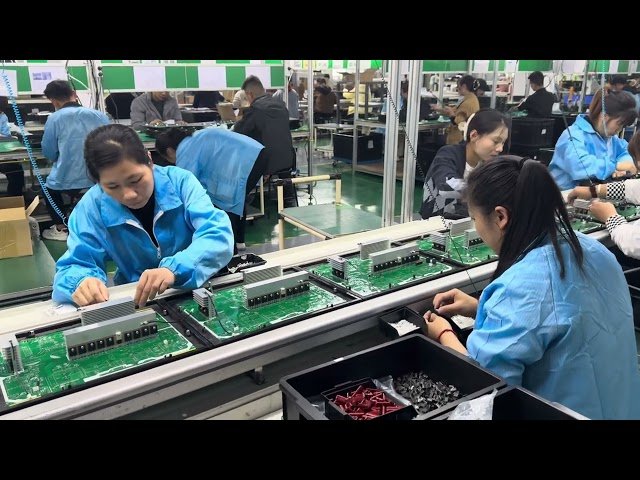Keeping up with regular inverter maintenance is key to making sure your system works at its best. Whether it’s for solar power, backup energy, or other equipment, a well-maintained inverter helps avoid problems and costly downtime.
So, in this article we will dive in about top 10 inverter maintenance tips becomes handy. By following simple steps, you can prevent issues, extend your inverter’s life, and keep everything running smoothly. Let’s break it down step by step—without the complicated terms!

What is an Inverter
Inverters are an essential part of the electric power system. Inverters convert direct current (DC) from sources such as solar panels or batteries into alternating current (AC), which is used by most appliances.
Inverters are found in many settings, such as solar power systems and backup power supplies. For example, in solar power systems, they connect your panels to the power grid or your devices. Without an inverter, the energy from your panels would be useless. Similarly, in backup systems, they convert battery power into electricity during outages.

In simple terms, inverters make the stored or generated energy usable for homes like off-grid inverter for home, power inverter for rv, and for vehicles like power inverter for truck,
Since inverters are so important, keeping them in good condition is essential.
Why is Inverter Maintenance Important?
Inverter maintenance is often overlooked, yet it’s crucial for keeping your power system running smoothly. Whether it’s part of a solar setup, a UPS backup, or another critical system, regular care helps prevent downtime, extend the equipment’s life, and improve efficiency. After all, no one wants their system to fail when it’s needed most, right?
So, why is inverter maintenance so important?
- Wear and Tear
Inverters face wear and tear over time from dust, dirt, loose connections, and heat. Regular checks catch small problems early, avoiding costly repairs or failures. - Ensure Efficiency
A well-maintained inverter keeps your system efficient. If it’s not working properly, you’ll get less energy and may face higher bills. - Extend Lifespan
Regular maintenance helps your inverter last longer by keeping parts clean and fixing small issues. This protects your investment and ensures it works when needed.
In short, regular maintenance is essential to keep your inverter running smoothly!

Overview of the Top 10 Inverter Maintenance Tips
Start with a Visual Check
Begin by visually inspecting your solar inverter. Look for physical damage, loose wires, or wear and tear. Over time, dust and dirt can build up and impact performance, so make sure the inverter is clean. If needed, gently clean it with a soft brush or cloth.
Monitor with Software
Many modern inverters include monitoring software, making it easy to track your system’s performance. Regularly check the output to ensure it meets expectations. If you notice a big drop in energy production, it might signal a problem.
Keep It Cool
Since inverters generate heat during operation, ensure they have proper ventilation to stay cool. Do not placing them in direct sunlight or near heat sources, as excessive heat can shorten their lifespan.
Shield from Weather
Place your inverter in a sheltered location to protect it from rain, snow, and direct sunlight. Regularly inspect for water leaks or corrosion, as these can harm its efficiency and durability.
Check and Tighten Connections
Loose electrical connections can reduce efficiency or cause failure. Periodically inspect and tighten all connections, including DC and AC terminals. Be sure to follow safety guidelines during this process.
Follow the Manual
Your inverter’s manual is a valuable resource. It provides specific maintenance tips and troubleshooting advice tailored to your model. Keep it nearby and stick to the recommended maintenance schedule.
Get Professional Help
Even with regular care, it’s wise to have a professional inspect your inverter yearly. They can spot hidden issues and ensure your system remains safe and efficient.
Update the Software
Inverter manufacturers often release firmware updates to improve performance and fix potential issues. Regularly check for updates and install them as needed to keep your inverter running optimally.
Plan for Replacement
Inverters typically last 10–15 years. As yours approaches the end of its lifespan, plan for a replacement. Upgrading to a newer model could also improve the performance of your solar power system.
Periodic Maintenance
System Cleaning
Clean the inverter every 6–12 months, depending on dust levels. Focus on:
- Checking the cleanliness of circuit boards and components.
- Inspecting the radiator temperature and cleaning with compressed air if needed.
- Replacing the air filter and maintaining the cooling fan.
Inspect the cooling fan once a year for cracks or unusual vibrations. Replace the fan if necessary.
Circuit Breaker Maintenance
Inspect the circuit breaker every 6 months. Check for corrosion on metal parts and ensure contactors, switches, and operating parameters are in good condition.
Safety Function Check
Check the inverter’s safety functions every 6–12 months. Test the emergency stop button, shutdown signals, and replace warning labels if needed.
Final Thoughts
In conclusion, a solid inverter maintenance tips is vital for ensuring your inverter operates at peak efficiency and enjoys a long lifespan. By following the best practices for inverter maintenance we’ve discussed – regular inspections, thorough cleaning and monitoring performance – you’ll avoid potential inverter failure issues and enhance reliability.

Who We Are
JOEYOUNG is a top solar inverter manufacturer based in China, dedicated to creating high-quality solar inverters that support clean energy production worldwide. With over 17 years of industry experience, we provide efficient and reliable solar PV inverters that meet the unique demands of residential, commercial, and industrial clients.
Frequently asked questions
Inverter ACs tend to be more durable for use, but maintenance costs are quite expensive
Inverters are no different. Just like your car, central heating boiler or computer, inverters need to be serviced, maintained and updated .
inverter AC has the main advantage of saving electricity costs. The compressor on an inverter AC does not work at full capacity all the time. When the room reaches the set temperature, the motor speed slows down, requiring less energy.

An essential factor in supporting the solar power system’s effectiveness and efficiency in its usage is the inverter. What is an Inverter? How long does an inverter last? What factors can affect the life of my inverter? This article contains the information you are looking for.

Below are the common solar inverter failure causes and ways to avoid them — Poor inverter ventilation, Inverter grid fault, faulty inverter MPPT, Inverter capacitor failure, Excess humidity, Poor inverter maintenance.

Deciding which inverter is best for your application can be tricky and challenging, so this article will answer your question “what size of power inverter do I need?”, how to calculate, and several related informations.
Authors

Hi, I am Caroline, graduated from a well-known university in Korea, now mainly engaged in article editing on inverters and related parts, I am committed to offering services and solutions about inverters for various industries and get the latest news about it. I look forward to collaborating with you all to advance the new energy industry.
View all posts

hi I am Jim, an inverter specialist with over 10 years of experience. I previously worked as an R&D engineer at a leading energy company, focusing on inverter design, optimization, and system integration. I have been involved in the development of key technologies and gained comprehensive expertise in both technical innovation and practical applications.Currently, I focus on professional writing to provide clear analysis and practical insights into inverter technology, contributing to its advancement and broader adoption in the industry.
View all posts



